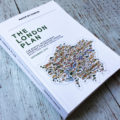Mentors are important in all careers. In a complex sector like property development, perhaps more so.
The sector is evolving as it copes with a range of major macro challenges. It’s also crammed with highs and lows. I remember one founder of a mid-sized developer explaining to me the ride was so intense that he often found himself be heralded as a hero and castigated as a villain all on the same day. It’s not for everyone.
For those starting out, don’t feel like you need the MD of a regional house builder at the other end of the line to guide you on your day-to-day journey. There are lots of ways to find mentors. Here are four bits of advice:
- Good mentors are often informal relationships.
Don’t feel like you have to formalise a relationship when looking for a mentor. The best mentors I find are informal. They can be a colleague a little more senior to you in the workplace or a former line manager. Always make sure they are one step removed from you though and never feel like it’s something that needs to be formalised. People like helping others and if you come to them asking for advice, they are normally willing to help without a formalisation of the relationship.
- Recruitment businesses are nexus points.
Get to know the recruitment businesses in the property space. They’re not always going to have time to specifically help you but they do lay on events and networking opportunities. They are businesses built on people and if you catch their eye, they will be more inclined to help. Businesses built on people mean you get out what you put in. If they see that you’re willing to put in the time networking, they will be more inclined to help when your time comes.
- Read, a lot. Listen to a lot.
Reading offers multiple windows on the world and allows you to see things through other people’s perspective. What to read is a different matter but I would say make it diverse and don’t be too reliant on one genre.
I would also recommend not reading purely fiction or non-fiction. Keep a balance but perhaps with a tilting to non-fiction if you’re in the formative stage of your career and want to apply lessons to your own working life. I have always had a policy of steering clear of auto-biographies, with honourable exceptions, because they tend to be a little overly bias and grand standing for my tastes.
Keeping an eye on what’s being published, particularly in a business context is also important. I would say always see what the weekend papers are reviewing and follow commentators online. Ryan Holiday does a good monthly reading list he publishes in a newsletter that you can follow. Worth adding.
I’ll also say that if you don’t like reading, the podcast space has grown exponentially. There are some great property ones out there. Nick Carmen at McDonald produces a really interesting one as do Susan Freeman and Andrew Deverell Smith. For more policy and property based listening the cerebral Brad Hargreaves is a great listen. As is Andrew Teacher’s propcast.
- Good mentors find you.
If you put yourself out there, good mentors will find you. Again, this doesn’t have to be formal. Getting to know people through networking and staying in touch and on good terms will benefit you in the long run.
Obviously you have to find the right places to meet mentors. Alex Harrington Griffin’s Developer’s Boardroom has always been a superb place to do this and it’s great to see that Molior has brought back Thirsty Thursday. The RDAS committee also has some great events.
When you find a relationship which clicks, always try and make it two way and be willing to give something back and it becomes even easier. It’s not always about today but what might be round the corner in the future.
Sometimes people you have known for many years in your network go from being peripheral to very important very quickly. Good mentors are the ones which emerge from the fray and are willing to lend an ear or a hand at short notice even if it’s just a phone call or a chat.
Conclusion
Overall, don’t feel pressure to have a range of mentors in your contacts book. That’s not how the world works and whilst there are formal mentor programmes out there, just because you’re not part of one doesn’t mean you won’t have people willing to help you. Mentors come and go but if you’re willing to be open and put the time in, you will never be short of help.









